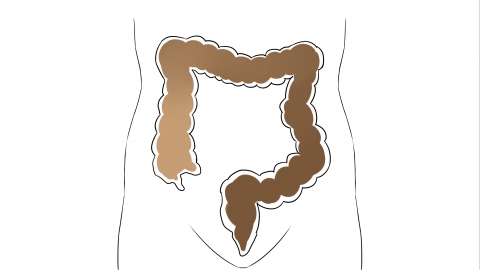What problems can a routine stool test reveal that may cause diarrhea?
Generally, a routine stool test can detect diarrhea caused by intestinal bacterial infection, intestinal parasitic infection, intestinal fungal infection, gastrointestinal bleeding, indigestion, and other issues. A detailed analysis is as follows:
1. Intestinal Bacterial Infection
If a routine stool test detects increased white blood cells or pus cells, or identifies pathogenic bacteria through smear or culture, it usually indicates intestinal bacterial infection. These bacteria can damage the intestinal mucosa, trigger an inflammatory response, accelerate intestinal peristalsis, and increase secretions, thereby causing diarrhea, often accompanied by symptoms such as abdominal pain and fever.

2. Intestinal Parasitic Infection
If parasite eggs or protozoa are found in a stool smear or concentration test, it indicates an intestinal parasitic infection. When parasites reside in the intestine, they may damage the intestinal mucosa, deprive the host of nutrients, or secrete toxins that irritate the intestines, leading to intestinal dysfunction and diarrhea. Some patients may also experience symptoms such as abdominal pain and blood in the stool.
3. Intestinal Fungal Infection
The detection of fungal spores or hyphae in a routine stool test suggests an intestinal fungal infection. Excessive fungal growth can invade the intestinal mucosa, cause inflammation, affect normal intestinal absorption and motility functions, and lead to diarrhea. This condition is commonly seen in individuals with weakened immunity or those who have used antibiotics long-term. The diarrhea typically presents as watery or mucoid stools.
4. Gastrointestinal Bleeding
A positive fecal occult blood test or direct observation of black, tarry, or blood-mixed stools indicates gastrointestinal bleeding. The bleeding can stimulate the intestines, accelerate intestinal peristalsis, and alter the intestinal environment due to the presence of blood itself, potentially causing diarrhea. Further investigation is required to identify the bleeding site.
5. Indigestion
If a routine stool test reveals a large amount of undigested food residue, it suggests indigestion. When gastrointestinal digestive function weakens, food cannot be adequately digested and absorbed, increasing the burden on the intestines and accelerating intestinal peristalsis. Undigested food may irritate the intestinal mucosa, causing diarrhea, often accompanied by symptoms such as bloating and reduced appetite.
In addition, if no abnormalities are found in routine stool examination but diarrhea persists, further tests should be combined to identify the underlying cause. During episodes of diarrhea, it is important to replenish fluids to prevent dehydration, maintain a light and easily digestible diet, reduce the intake of spicy and greasy foods, practice good personal hygiene to avoid cross-infection, and promote recovery.






